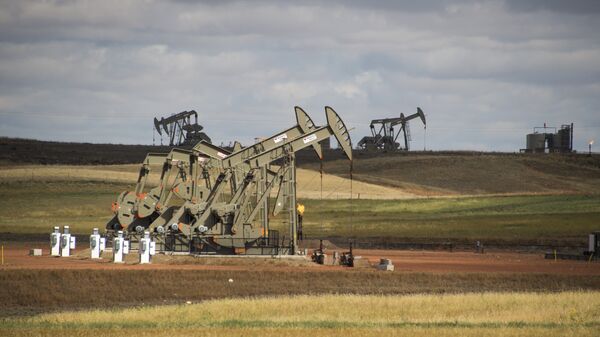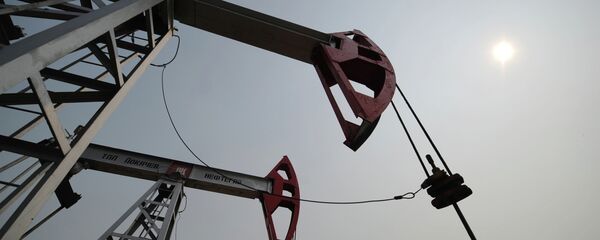Analysts point out that the previous decrease was driven by an increase in shale oil production, especially in the United States under President Donald Trump. However, the market trend is currently changing towards an increase in demand for conventionally produced crude.
Oil Could Drop Below $40
One of the driving forces behind this trend was the policy of the new US presidential administration. Soon after Trump assumed power his administration initiated the removal of environmental restrictions on the production of shale oil as part of a plan to create "American energy dominance." As a result, the shale oil industry in the US experienced a real boom.
Last week, Goldman Sachs analysts warned in a report that crude could slump below $40 per barrel if the massive US oil glut persists and the Organization of Petroleum Exporting Countries (OPEC) fails to take appropriate measures.
Growing Demand
In recent months, conventionally produced crude has been under increased pressure, including from the shale industry and the market activities of non-OPEC members Nigeria and Libya.
India has recently emerged as a new active player in the oil market. Previously overshadowed by China, India’s demand for fossil fuels has been intensely growing.
As a result, many analysts tend to think that a downturn in the Chinese economy will not be a negative factor for the global crude market. Moreover, Germany, one of the world’s industrial leaders, is currently showing an increase in oil consumption.
According to the International Energy Agency (IEA), demand for crude is expected to reach 98 million barrels a day by the end of 2017 and will continue to grow throughout 2018, to an estimated 99.4 million barrels a day.
OPEC Meeting in Russia
An upward trend in global crude prices proves that OPEC’s efforts to freeze output have been positive for the market.
Despite the fact that Russia is not a member of the cartel, Moscow shows readiness to coordinate its efforts with the organization.
The technical committee involving six OPEC and non-OPEC members will convene on July 24 in St. Petersburg. According to Reuters, representatives of Nigeria and Libya may also attend the talks.
The parties will discuss the implementation of the output freeze deal and further steps needed to rival shale producers. Being in opposition to the majority of global producers, US companies currently risk losing the war for oil prices.




